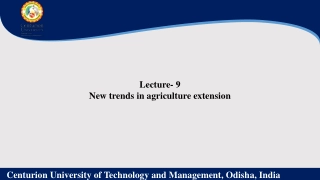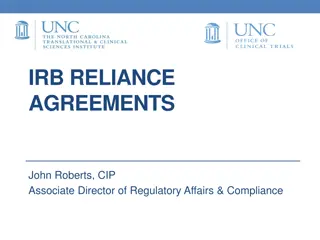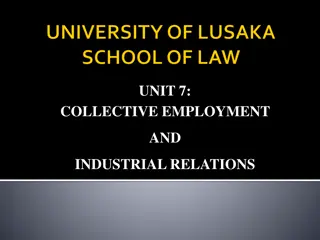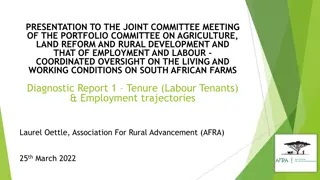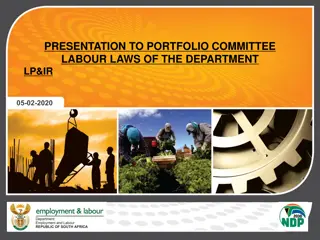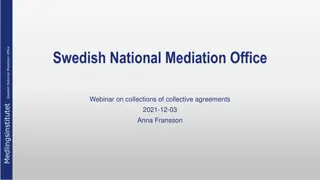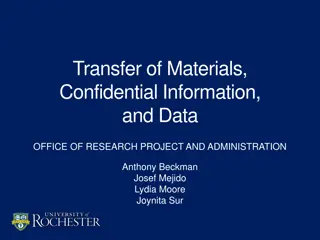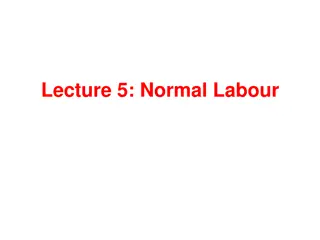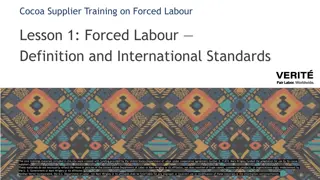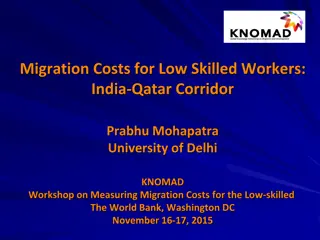Understanding the Extension of the Act of 5 December 1968 on Collective Labour Agreements
Exploring the extension of the Act of 5 December 1968 on collective labour agreements and joint committees, this workshop delves into its scope, importance of joint committees, and exceptions such as diplomatic missions. The Act applies to private sector employers, workers, and specified Belgian public sector employers, outlining definitions, principles, and entities covered. Recent amendments have clarified its non-application to certain foreign public authorities, with a focus on diplomatic missions and related personnel.
Download Presentation

Please find below an Image/Link to download the presentation.
The content on the website is provided AS IS for your information and personal use only. It may not be sold, licensed, or shared on other websites without obtaining consent from the author. Download presentation by click this link. If you encounter any issues during the download, it is possible that the publisher has removed the file from their server.
E N D
Presentation Transcript
Extension of the Act of 5 December 1968 on the collective labour agreements and joint committees - Explanations and impacts Workshop 24/04/2018
Extension of the Act of 1968 Act of 5 December 1968: Scope Extension article 2, 3 Who is the extension aimed at? The joint committees Definition Missions Aim Scope of competence
Extension of the Act of 1968 Importance of the joint committee Principles for determining the competent JC Legal entity Activity of the employer One JC by employer Exceptions Application to diplomatic missions and diplomats
The Act of 5 December 1968 I. Scope Applicable to all private sector employers and their workers + to Belgian public sector employers explicitly mentioned in Article 2, 3, point 1 Worker = a person who provides work under the authority of another person Employer = person who employs a worker
II. Extension of the Act of 1968 By the Act of 15/01/2018 on various employment provisions, art. 2 (Belgian Official Gazette 05/02/2018) Entered into force on 15 February 2018
Addition of a point 1/1 to Article 2, 3, which defines to whom the Act does not apply : " 3. This Act does not apply to: (...) 1/1. persons employed by foreign public authorities, with the exception of diplomatic missions, missions to international organisations having their headquarters in Belgium, consular posts and diplomatic agents or foreign consular officials, concerning their personnel who do not enjoy privileged status under the Vienna Conventions of 18 April 1961 on diplomatic relations and of 24 April 1963 on consular relations or any other applicable international instrument"
III. Who is the extension aimed at? 1. Employers concerned: Diplomatic missions and consular posts Missions to international organisations having their headquarters in Belgium Foreign diplomatic agents and consular officers 2. Workers concerned : Only the personnel who do not enjoy privileged status under the Vienna Conventions or any other applicable international instrument
The joint committees (JC) Definitions A joint committee is a body composed: - by an equal number of representatives of employers' organisations and representatives of workers' organisations; - by a chairman and a vice-chairman (social conciliators of the FPS); - by two or more secretaries (FPS officials)
The joint committees (JC) The joint subcommittees (JSC) are subdivisions of the joint committees established for a specific territory or sector of activity.
The joint committees (JC) Missions The missions of the joint committees and subcommittees are as follows: conclude collective labour agreements; prevent or resolve social conflicts; advise the government, the National Labour Council or the Central Economic Council; accomplish each mission entrusted to them by a law.
The joint committees (JC) Aim Set up for all branches of activity, the joint committees aim to group together companies carrying out similar activities in order to subject them to regulations adapted to working conditions.
The joint committees (JC) Scope of competence Each joint committee has a scope of competence (= sector of activity) fixed by royal decree. All sectors of activity are covered by the 166 existing joint committees and subcommittees. -> there are auxiliary JCs that are competent if there is no specific JC.
Importance of the joint committee Determines the pay and working conditions of workers Determines the employer's possible contributions to a welfare fund
Importance of the joint committee The employer alone is responsible for the application of the correct joint committee and the adequate collective labour agreements. Non-compliance with CLAs may be subject to penal sanctions. Only the Courts and Tribunals may, in the event of an individual dispute, take a binding decision concerning the JC competent for an employer.
Principles for determining the competent JC The competent joint committee is determined for a legal entity i.e. the natural or legal person to whom the worker is in a relationship of subordination.
Principles for determining the competent JC The competent joint committee is determined on the basis of the actual activity carried out by the employer with staff. In principle, the joint committee is not determined on the basis of the tasks or functions of the workers. /!\ exceptions to this principle in the RD establishing the scope of competence.
Principles for determining the competent JC In principle, an employer reports to only one JC depending on its main activity. Main activity = the activity to which the most hours of work or the highest distribution of staff are devoted
Principles for determining the competent JC /!\ Exceptions JC competent only for blue-collar workers or white- collar workers Derogation from the principle "the accessory follows the principal" in the scope of competence Several JC may be assigned when an employer has separate activities with separate staff
Application to diplomatic missions and diplomats 1. Diplomatic missions, consular posts and missions to international organisations No specific JC for the employer's main activity -> competence of the auxiliary joint committee for the non-profit sector No. 337
Application to diplomatic missions and diplomats "Competent for workers in general and their employers and this, for organisations in the non-profit sector whose activities do not fall within the competence of another specifically competent joint committee. "Non-profit" means not pursuing a profit-making purpose .
Application to diplomatic missions and diplomats /!\ The JC 337 is not competent for: "the organisations in the non-profit sector whose activities are the responsibility of another joint committee with specific primary or ancillary competence -> derogates from the principle "the accessory follows the principal"
Application to diplomatic missions and diplomats /!\ The JC 145 for horticultural enterprises is responsible for: "the installation and/or upkeep of parks, gardens, sport and recreation grounds or green zones by direct labour, when these activities constitute the main occupation of the company workers -> if the employer employs workers mainly engaged in gardening work, they will fall under the JC 145
Application to diplomatic missions and diplomats /!\ If the employer carries out another economic activity that falls under a specific JC, this JC will apply to the staff engaged in this activity, even if it is an ancillary activity.
Application to diplomatic missions and diplomats 2. Foreign diplomats The same reasoning applies to diplomats who are employers: They will fall under the JC 337 except: For the gardeners -> JC 145 If they carry out another economic activity -> Specific JC /!\ If they employ domestic workers -> JC 323
Application to diplomatic missions and diplomats The joint committee 323 for building management, real estate agents and domestic workers is competent for: "the domestic workers and their employers. "Domestic worker" means any worker hired under a domestic work contract."
Application to diplomatic missions and diplomats A domestic work contract is a contract by which a worker undertakes to perform, for an employer as a natural person, works that are mainly: housework, manual work, work carried out for the purposes of the employer's household or his/her family.
Application to diplomatic missions and diplomats In summary: A diplomatic mission falls in principle under JC 337, except for its workers engaged mainly in gardening work (= JC 145). In principle, a diplomat reports to JC 337, unless he or she employs workers mainly in gardening (= JC 145) and/or domestic workers (= JC 323).
Further information Website of the FPS Employment, Labour and Social Dialogue www.employment.belgium.be Theme Social Dialogue Joint committees: information about the scope of competence and the determining of JC Collective labour agreements: research on the CLAs concluded by a joint body Minimum salaries: info about the remunerations by sector


